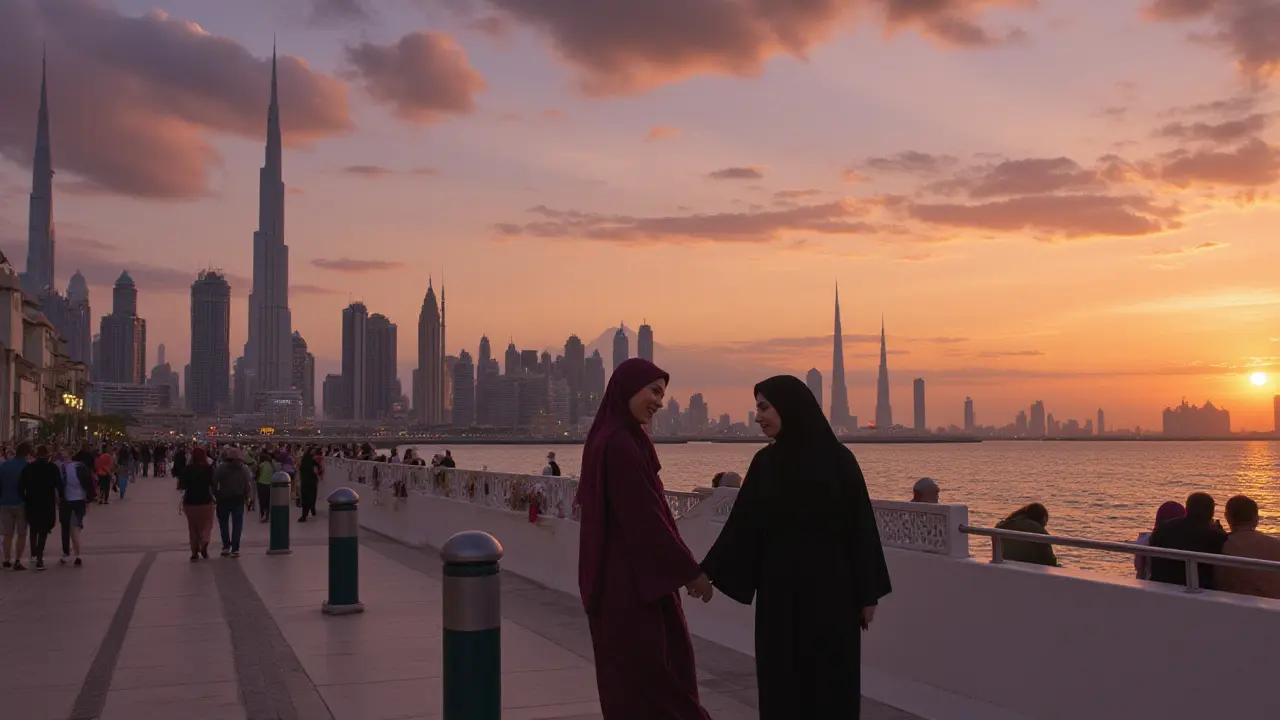Curious if two wives can marry each other in Dubai? Dive into Dubai's marriage laws, cultural context, and real-life limitations around same-sex marriage. Get honest answers and practical info on what is (and isn't) possible for LGBTQ+ couples in the UAE.
Dubai Marriage Laws: A Simple Guide for 2025
If you’re thinking about tying the knot in Dubai, you probably have a list of questions buzzing in your head. How do you get a marriage visa? What paperwork is needed? Can you have more than one wife? This guide breaks down the most important rules so you can plan with confidence.
Key Requirements for Getting Married in Dubai
First off, both partners must be at least 18 years old. The UAE follows the Muslim‑based Sharia system, but it also respects the personal status laws of other religions, so non‑Muslims can marry under their own legal frameworks as long as they follow the official process.
You’ll need a valid passport, a residency visa (if you live in the UAE), and a recent medical report showing you’re free of contagious diseases. For expatriates, a No Objection Certificate (NOC) from your employer is often required. The NOC proves your job sponsor has no problem with you getting married.
All documents must be translated into Arabic and attested by the relevant embassy and the UAE Ministry of Foreign Affairs. Once you have the papers, you can book an appointment at the Dubai Courts or a recognized marriage registrar. The ceremony itself is quick—usually under an hour—after which you receive a marriage certificate that’s valid across the UAE.
Polygamy, Divorce, and Other Common Questions
Polygamy is legal for Muslim men in the UAE, but there are strict conditions. A husband must obtain permission from a family court, prove he can financially support multiple wives, and demonstrate that the new marriage won’t harm his existing family. Non‑Muslim men cannot practice polygamy.
Divorce can be initiated by either spouse. For Muslim couples, the family court follows Sharia principles, which often involve a waiting period (iddah) for women and division of assets based on what each partner contributed. For expatriates, the court may apply the law of the couple’s home country if both parties agree and the case is filed promptly.
When it comes to children, the mother’s nationality usually determines the child’s citizenship. If the father is a UAE citizen, the child automatically gets UAE citizenship. For mixed‑nationality families, the child’s passport and residency status depend on the parents’ home countries and the visa they hold.
One thing many people overlook is the impact on employment. Some employers require you to update your marital status, which can affect health insurance, end‑of‑service benefits, and even salary packages. It’s a good idea to talk to HR before you sign any documents.
Finally, remember that the UAE’s legal system can change fast. Always double‑check the latest requirements on the Dubai Courts website or consult a local lawyer before you start the process. Staying informed saves you time, money, and hassle.
Getting married in Dubai doesn’t have to be a headache. By gathering the right documents, understanding the visa steps, and knowing the rules about polygamy and divorce, you can focus on the celebration rather than the paperwork. Congratulations, and enjoy your new chapter!

